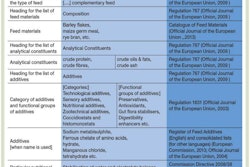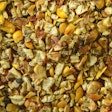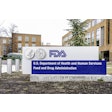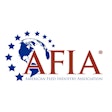The American Feed Industry Association (AFIA) has submitted comments to the U.S. Food and Drug Administration (FDA) on the Veterinary Feed Directive (VFD). AFIA applauds FDA’s decision to issue the proposed rule, which addresses the organization’s concerns with the administrative process of issuing VFDs, but AFIA also expressed concerns in the details of the rule that could potentially have a negative affect the feed industry.
“AFIA is pleased with FDA’s decision to recognize and tackle many industry concerns about the administrative process of issuing VFDs in the proposed rule. After working with numerous producer groups, the American Veterinary Medical Association and others, our organization provided the agency with a letter on Feb. 25, which expressed our issues with the rule,” said Richard Sellers, senior vice president of legislative and regulatory affairs. “We hope the agency takes our suggestions to heart when finalizing the rule, as AFIA feels this is a necessary step in making judicious use decisions regarding approved animal drugs.”
AFIA commented that a major area of concern is the overall shortage of veterinarians, who will be needed to cover the large, expected increase in approved VFD animal drugs and the training needed as a result of the rule.
“Numerous incidents have been reported to AFIA regarding VFDs received by feed mills with grossly incorrect information. Calls to the veterinarians in these instances have yielded a serious lack of understanding about the VFD process. This seriously undermines the industry’s ability to get these medications to the animal producers in a timely manner,” AFIA commented.
Other requests
AFIA is also requesting FDA consider creating a program for integrating the new VFD products into the marketplace and that FDA should discuss how newly created VFD combinations will be addressed in the preamble to the final rule, noting there are no VFD combinations approved.
AFIA supports FDA’s decision to include the reduction of time for recordkeeping from two years to one year, the allowance for faxes without a follow-up on an original VFD form from the veterinarian and VFD submissions via smartphones and related devices.
“Many of the changes FDA is proposing to the VFD process are those suggested by AFIA and other feed groups. AFIA believes they will lead to a streamlined process that will in no way compromise safety, recordkeeping or animal health. These changes will assist the feed industry in distribution of approved animal drugs with a valid VFD drug to producers in a more timely and safe manner than currently,” the comments stated.














